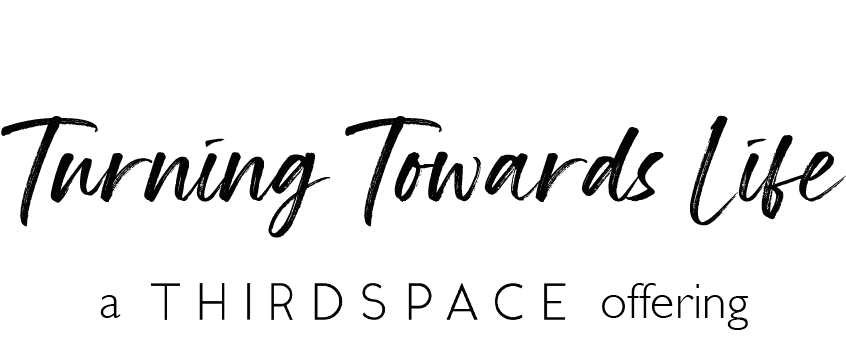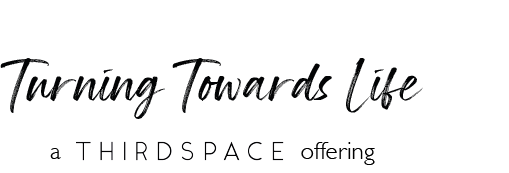When We Mistake Who We Are, Episode 64
Here's Episode 64 of Turning Towards Life, a weekly live 30 minute conversation hosted by thirdspace coaching in which Justin Wise and Lizzie Winn dive deep into big questions of human living.
You can join our members-only facebook group here to watch live and join in the lively comment conversation on this episode. You can also watch previous episodes there, and on our YouTube channel.
This week we talk about how we might understand the mystery of being human. So often we both find ourselves in a place of real confusion, and it's tempting while there to treat the confusion as something wrong - either with life or with ourselves. We know this is true of many other people too.But there are bigger narratives to step into when life seems a mystery, or when things are breaking down around us and within us. One powerful and stretching source of different perspectives is the 13th century Zen teacher Dogen. Our source for this week begins with Dogen's suggestion that we are all a kind of 'time', and follows with some questions and interpretation by our friend and colleague James Flaherty.
When We Mistake Who We Are
“The way the self arrays itself is the form of the entire world. See each thing in this entire world as a moment of time.
Things do not hinder one another, just as moments do not hinder one another. The way-seeking mind arises in this moment. A way-seeking moment arises in this mind. It is the same with practice and with attaining the way. Thus the self setting itself out in array sees itself. This is understanding that the self is time. ”
When we mistake who we are, we hopelessly strive to protect ourselves, fruitlessly attempt to defend what we feel we need to maintain ourselves and, at the deepest level, feel unmet, unheld, unknown by the world. All of this because we define ourselves, feel ourselves, know ourselves as much too small and then insist that everyone submit to our definition and treat us as this smallness. All of this of course is quite normal and what our culture produces; nonetheless, it is the source of our discontent and our sharing that discontent with others—see dysfunctional families, territorial politics at work, wars, crime, violence… you get the picture.
Dogen, in the quote above, has a different possibility for us to enter into, a different path to take. What if we are the same being as the world? What if we are the same being as time is? Even if we think that world is limited (by the way, Dogen means the entire universe, not just the planet Earth) we know that time has no beginning or end that we can imagine. If we are time, which is inseparable from all other phenomena, then certainly we don’t have to defend, protect or feel relationally wounded.
And the answer to “How far do I extend?” is answered quite differently.
– James Flaherty
Photo by Nathan Dumlao on Unsplash

